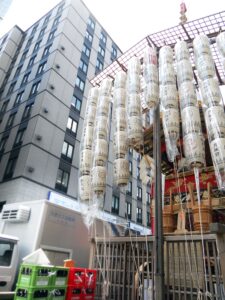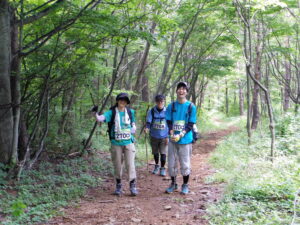こんにちは。フィリピンからの留学生で、京都事務所インターンのマーヴィンです。
今回は、「パリでの気候変動交渉に先駆け、ローマ・カトリック教会を牽引する教皇が、すべての人々が気候変動に対する責任を負い、有意義な対話を進めるように呼びかけた」という話題です。
フランシスコ教皇の呼びかけ
フランシスコ教皇は、気候変動に関する回勅の中で、人類共通の家である地球環境を守るように世界に呼びかけました。
現在、我々は悲惨な環境破壊に直面していますが、フランシスコ教皇は、人類は私たちの共通の家である地球環境を救うことができると希望を持っています。
回勅とは、カトリックの教義に関する教皇の指針を示す公文書です。近年の教会の歴史においては、人類にとっての重大な問題について見解や批評などが発表されてきました。それは世界中のキリスト教徒だけでなく、宗派を超えて広く届けられ、現代の喫緊の課題について考え、取り組むように促しています。
この回勅が、気候問題に関する論議を具体化させる、強力な後押しとなることが期待されます。今回の発表は、世界各国が新たな合意に向けて協議を行うパリでの気候変動枠組条約締約国会議を数か月後に控えた極めて重要なタイミングで行われており、これにより、各国に現代の深刻な環境問題に立ち向かう「世界共通の計画」への総意を促しています。
フランシスコ教皇の呼びかけは、個人、家族、地域社会、国、国際コミュニティまであらゆる対象に向けて、環境問題について有意義な対話と協議を行い、方向性を変えていくよう、積極的に介入するよう求めています。
万物は全て共にあり(創造物の一体性)
Laudato Si’
(ラウダート・シ-あなたが称えられますように-)*1
この言葉は、800年前に自然環境の守護聖人であるアッシジの聖フランシスコによって書かれた賛歌「私の主よ、あなたは称えられますように、私たちの姉妹である母なる大地のために。大地は、私たちを養い、治め…」*2から引用されています。ちなみに、フランシスコ教皇はこの聖人にちなんで名付けられました。
*1訳注:2015年6月18日にフランシスコ教皇が発表した回勅につけられたタイトルでアッシジのフランシスコの『太陽の讃歌』の冒頭から取られたもの
*2訳注:ラウダーテ>太陽の賛歌
主をたたえ、万物を守ることはキリスト教の信仰の中心です。実際、フランシスコ教皇は回勅の最初と最後に、万物、つまり人間を養い、人を治める自然について言及しています。教皇にとって自然は人間社会と対峙するものではありません。むしろ、自然との交流は不可欠です。自然と人は表裏一体の関係であり、環境問題と人間社会は切り離すことができないものです。人は世界の土地を耕し、守る役割を担っているにすぎません。人類が自然を敬い、受け入れるという道徳的概念なしに地球との共存はあり得ないでしょう。
産業革命以降、人類の活動は急速に自然を破壊してきました。教皇は「我々の無責任な行動によって危害を与え続けてきたため、地球は悲鳴を上げています」と警鐘を鳴らしています。
無責任な人間の行動は、大気汚染や気候変動、水不足、膨大な廃棄物、生物多様性の喪失、世界的な不均衡など複雑な環境問題を引き起こしています。
フランシスコ教皇は、我々が直面している人為起源の環境問題を指摘し、無駄の多い大量消費と場当たり的な開発を批判しています。物質的な需要を満たすための発展に重きを置き、社会的共生や環境の持続性のような他の要素を進展させることを怠ってきたというのです。
気候変動
フランシスコ教皇は、気候とは、人類全員に公共の利益をもたらすものであり、全ての人にとって意味のあることだと理解されています。健全で安定した気候は、人命にとって不可欠な数多くの要素に関与しています。
しかし、200年にわたる急激な産業化に伴う人類の活動が地球温暖化を招いてきました。フランシスコ教皇は、地球温暖化は、おおむね人為起源であると確信しています。
「ここ数十年の地球温暖化の原因は、主に人間活動の結果排出されている温室効果ガス(二酸化炭素、メタン、窒素酸化物ほか)が濃縮したものだと、数々の科学研究が示しています。」と指摘しています。
気候変動は、確実に今日の人類が直面する最重要課題となっています。温暖化が引き起こす結果は深刻かつ複雑で、環境、社会、経済、政治および物流などあらゆる分野を網羅しています。誰にとっても頭の痛い問題ですが、貧困家庭を生む原因にもなります。災害や天候の変化に対処できる経済力を持たない最貧困層の人々が影響を受けやすいという偏りが生じるのです。
迅速かつ統一的な行動を
気候変動とその深刻な結果にさらされているにも関わらず、国際政治の反応は鈍く十分ではありません。
フランシスコ教皇は、今日の我々の行動が将来世代の運命を決定づけるのだと思い出させてくれました。気候変動においては防ぐことのできないことですが、私たちの子供や孫たちがつけを払わされるのです。
教皇が我々に投げかけたのは「私たちに続く子供たちが大きくなったとき、どんな世界を彼らに残したいですか?」という問いかけでした。
この問いかけが回勅の重要な点です。
化石燃料や他の有害な炭素排出源からの排出を今のまま続ければ、将来世代の家(地球)をも危険にさらすのです。
フランシス教皇にとって気候変動は、地球に人類が存続するために何らかの対処を取るべき問題なのです。この世界で私たちが生を受けたのは何のためでしょう?ここに存在している理由は何でしょう?私たちが働き、努力するのは何のためでしょう?これらの大切な質問を自問自答してみてはいかがでしょうか。
一日の終わりに、フランシスコ教皇は、国際社会、国、地域、個人レベルでの対話を通して迅速かつ統一的な行動を起こすよう呼びかけました。気候変動は世界的な問題なので、世界的な行動が必要なのです。
「個々の国が単独で行動しても解決できない深刻な気候問題に対抗するには、世界での対話が不可欠です」と結んでいます。
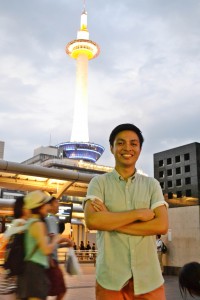 本記事の執筆者のマーヴィン・トレス・ラゴネラは、気候ネットワークのインターンです。フィリピンのアテネオ・デ・マニラ大学で修士を取得し、ASEAN大学ネットワークと京都大学間の交流プログラムのもと京都大学でエネルギー管理と持続可能性の転換に関する研究に従事しました。
本記事の執筆者のマーヴィン・トレス・ラゴネラは、気候ネットワークのインターンです。フィリピンのアテネオ・デ・マニラ大学で修士を取得し、ASEAN大学ネットワークと京都大学間の交流プログラムのもと京都大学でエネルギー管理と持続可能性の転換に関する研究に従事しました。
(訳:スタッフ鈴木)
*原文の英語は続きをご覧ください
Pope Francis calls for Global Action against Climate Change in Encyclical
Ahead of the Paris Climate Negotiations, the leader of the Catholic Church calls on everyone to take responsibility on climate change and engage in meaningful dialogue
In his encyclical on climate change, Pope Francis sends out a universal call to take care of our common home.
Despite the tragic environmental crisis we are facing now, Pope Francis believes that “humanity still has the ability to work together in building our common home” that is our planet.
A Papal encyclical is a kind of letter concerning Catholic doctrine. In recent Church history, it is written and promulgated to discuss and reflect on significant issues facing humanity. It reaches out to all Christians - and even beyond - to think about and to be engaged on pressing issues of our times.
As such, the climate encyclical has been much-anticipated to serve as a powerful voice in shaping the climate conversation. It comes at a crucial time - months ahead of the Paris climate negotiations that could spell a new global climate regime. It renews the call for global consensus - “a world with a common plan” - in confronting the deep ecological crisis of our time.
Indeed, Pope Francis urges each and every one – individuals, families, local communities, nations and the international community – to engage in meaningful conversation and dialogue on the environment in order to change the course of things and “intervene positively”.
Oneness with Creation
Care for creation as a way of praising God is at the heart of Christian faith. In fact, Pope Francis begins and ends his encyclical by reflecting on creation - the natural world that sustains, houses and governs humans. For him, the natural world should not be viewed in opposition with the human world. Rather, what is needed is universal communion with nature. Nature and the human world are inextricably linked and part of one another, and human beings are called to till and keep this garden of the world. Without this moral structure that allows human beings to respect and embrace nature, the planet will continue with its path against us.
However, human activity ever since the industrial revolution has resulted in the rapid deterioration of nature. “The earth is crying because of the harm we have inflicted on her by our irresponsible use and abuse of the goods”.
Irresponsible human behavior has resulted in complex environmental problems: pollution and climate change, water shortage, excessive waste, loss of biodiversity, and global inequality.
Pope Francis traces the ecological crisis we are facing to human roots. He critiques wasteful consumerism and irresponsible development. Because we define progress in terms of the satisfaction of our material needs, we have disregarded other aspects of development such as social inclusion and environmental sustainability.
Climate Change
Pope Francis understands climate as a common good that belongs to all and is meant for all. A healthy and stable climate is linked to many of the essential conditions for human life.
However, human activities throughout two centuries of rapid industrialization have resulted in global warming. Pope Francis is convinced that the warming of the planet is largely man-made.
“A number of scientific studies indicate that most global warming in recent decades is due to the great concentration of greenhouse gases (carbon dioxide, methane, nitrogen oxides and others) released mainly as a result of human activity.”
Indeed, climate change has become one of the principal challenges facing humanity today. Its implications are grave, complex and all-encompassing: environmental, social, economic, political, and for the distribution of goods. It has afflicted entire populations and has resulted in the migration of poor families. It disproportionately affects the poorest of the poor who do not have the financial resources to adapt to disasters or changing weather conditions.
Swift and Unified Action
In the face of climate change and its grave consequences, international political responses have been weak and insufficient.
Pope Francis reminds us that our actions today will determine the fate of future generations. This is one of the inevitable consequences of climate change: that our children and grandchildren will bear the costs.
He poses the question: “What kind of world do we want to leave to those who come after us, to children who are now growing up?”
This question is at the heart of the encyclical.
When we extract fossil fuels or release harmful carbon emissions today, we also endanger the home of future generations.
For Pope Francis, this has something to do with the very purpose of our existence on earth. It should lead ask to ask these important questions to ourselves: What is the purpose of our life in this world? Why are we here? What is the goal of our work and all our efforts?
At the end of the day, Pope Francis encourages swift and unified action through dialogue at the international, national, local and personal level. Because the climate change has become a global problem, it requires global action.
“A global consensus is essential for confronting the deeper problems, which cannot be resolved by unilateral actions on the part of individual countries.”
 Marvin Torres Lagonera is an intern at Kiko Network. He is completing his Masters degree at the Ateneo de Manila University in the Philippines and understaking his research on energy governance and sustainability transition in Kyoto University under the ASEAN University Network-Kyoto University mobility program.
Marvin Torres Lagonera is an intern at Kiko Network. He is completing his Masters degree at the Ateneo de Manila University in the Philippines and understaking his research on energy governance and sustainability transition in Kyoto University under the ASEAN University Network-Kyoto University mobility program.
この記事を書いた人

- 気候ネットワークに所属されていた方々、インターンの方々が執筆者となっております。
最新の投稿
 インターンの声2026年1月19日COP30 森林分野の議論まとめ
インターンの声2026年1月19日COP30 森林分野の議論まとめ 活動報告2025年5月28日イギリス石炭火力発電終焉を取り巻く環境とは
活動報告2025年5月28日イギリス石炭火力発電終焉を取り巻く環境とは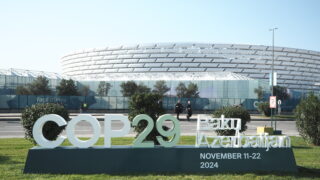 インターンの声2025年3月11日インターンが書くCOP29体験記②
インターンの声2025年3月11日インターンが書くCOP29体験記②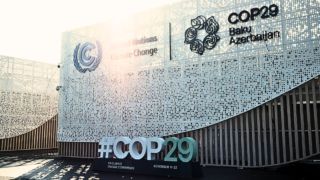 インターンの声2025年1月31日インターンが書くCOP29体験記
インターンの声2025年1月31日インターンが書くCOP29体験記

